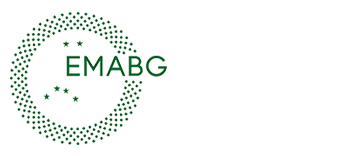Curriculum
For now please see the currently valid version.
For now please see the currently valid version.
The workload in each semester is 30 ECTS. Only mandatory courses are shown here. If this is less than 30 ECTS, the rest is filled with elective courses for that semester.
The workload in each semester is 30 ECTS. Only mandatory courses are shown here. If this is less than 30 ECTS, the rest is filled with elective courses for that semester.
Note: Courses are chosen in consultation with your study advisor, and should be complementary to and not overlapping with the courses you took at your first university (NMBU).
Learn more about available STUDENT THESIS TOPICS at the Animal Breeding and Genomics Group
Learn more about the Animal Breeding and Genomics Group at WUR
The workload in each semester is 30 ECTS. Only mandatory courses are shown here. If this is less than 30 ECTS, the rest is filled with elective courses for that semester.
The workload in each semester is 30 ECTS. Only mandatory courses are shown here. If this is less than 30 ECTS, the rest is filled with elective courses for that semester.
EN00002487 – Tools : Biostatistics, Bioinformatics and Modelling (5 ECTS)
EN00002488 – Animal Experiment, Welfare and Ethics (3 ECTS)
EN00002490 – Application of Modelling to animal Physiology (4 ECTS)
EN00002491 – Physiology and Genetics of Animal Reproduction (2 ECTS)
EN00013688 – Concept of holobiont in animal breeding: Metagenomics (1 ECTS)
EN00013689 – Environmental regulation of genes expression in animal breeding and reproduction: Epigenetics (1 ECTS)
or
EN00013692 – Adaptation (elective courses A – option 1) (1 ECTS)
EN00013693 – Conservation Genetics (elective courses B – option 1) (1 ECTS)
or
EN00013694 – Rumen physiology: in vitro studies for nutritional
evaluation (elective courses B – option 2) (1 ECTS)
EN00013695 – Epidemiology and Health (elective courses C – option 1) (1 ECTS)
or
EN00013696 – Advanced genetics and Omics data integration (elective courses C – option 2) (1 ECTS)
YOU NEED TO CHOOSE ONLY 3 OF THE OFFERED COURSES = IN TOTAL 3 ECTS
The workload in each semester is 30 ECTS. Only mandatory courses are shown here. If this is less than 30 ECTS, the rest is filled with elective courses for that semester.
Last updated: 14.05.2025

Funded by the European Union. Views and opinions expressed are however those of the author(s) only and do not necessarily reflect those of the European Union or the European Education and Culture Executive Agency (EACEA). Neither the European Union nor EACEA can be held responsible for them.
This site uses cookies. By continuing to browse the site, you are agreeing to our use of cookies.
OKLearn moreWe may request cookies to be set on your device. We use cookies to let us know when you visit our websites, how you interact with us, to enrich your user experience, and to customize your relationship with our website.
Click on the different category headings to find out more. You can also change some of your preferences. Note that blocking some types of cookies may impact your experience on our websites and the services we are able to offer.
These cookies are strictly necessary to provide you with services available through our website and to use some of its features.
Because these cookies are strictly necessary to deliver the website, you cannot refuse them without impacting how our site functions. You can block or delete them by changing your browser settings and force blocking all cookies on this website.
We also use different external services like Google Webfonts, Google Maps and external Video providers. Since these providers may collect personal data like your IP address we allow you to block them here. Please be aware that this might heavily reduce the functionality and appearance of our site. Changes will take effect once you reload the page.
Google Webfont Settings:
Google Map Settings:
Vimeo and Youtube video embeds:
You can read about our cookies and privacy settings in detail on our Privacy Policy Page.
